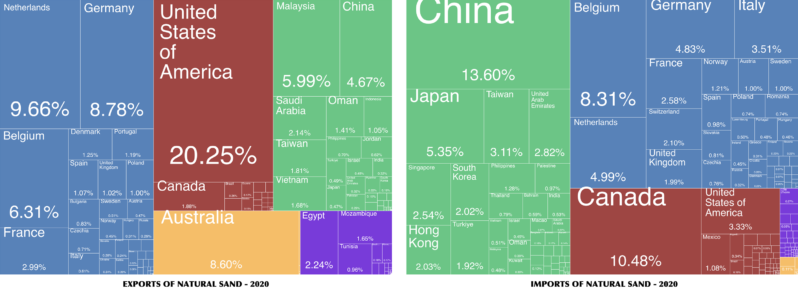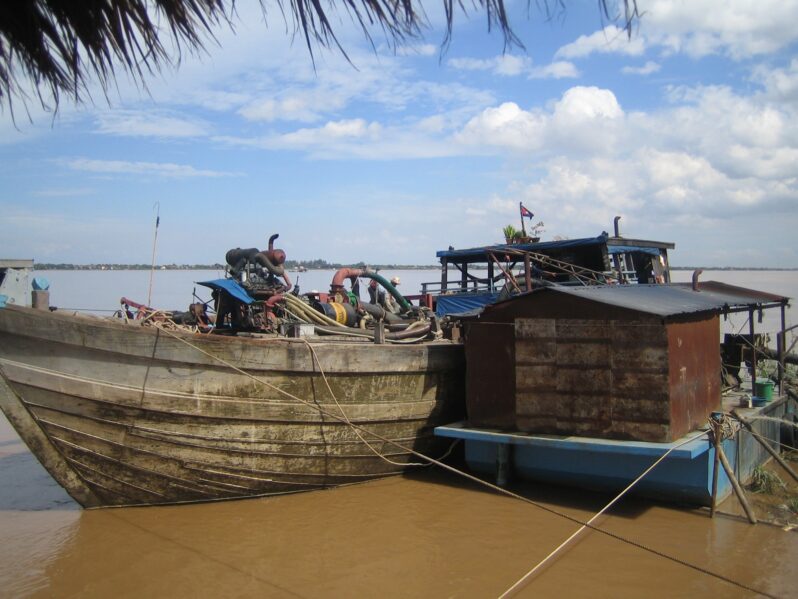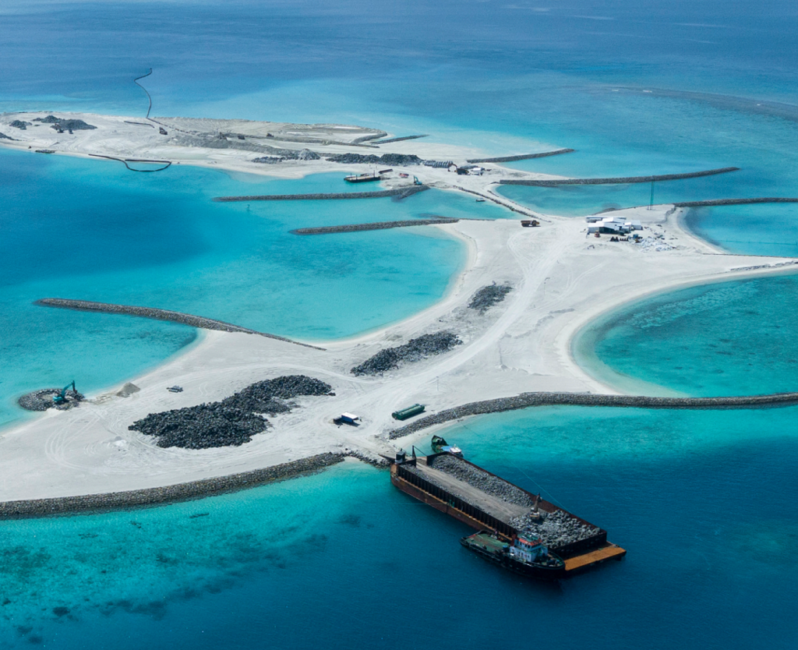Global sand trade figures don’t add up – Beneath the Sands ERC

On March 17, more than 120 tons of sand packed into drums was loaded onto the Basle Express, a container freight ship more than three soccer fields long. The ship was docked in one of America’s major ports, Savannah, Georgia, in the Southeast region of the country.
The shipment itself was not remarkable — except for how it is emblematic of the international sand trade, highlighting the type of sand that attracts foreign buyers, the countries that are buying and those that are selling…
We can’t run away – Beneath the Sands ERC

The rise in sand demand endangers the lives of children, laborers, journalists and environmental defenders.
Greed over grains of sand has a fatal human cost: As cities rise and countries urbanize, sand-related murders and other associated crimes have taken a toll on poverty-stricken communities.
In parts of the globe, where sand is extracted, criminal gangs and sand mafias control the multi-billion dollar trade, spawning violence in land-rich, developing nations. On their trail are hundreds of people — miners, journalists and environmental defenders — reported to have been killed, imprisoned or threatened…
Women against the grain – Beneath the Sands ERC

Women in Cambodia, India, Kenya and Indonesia share how they are on the frontlines in the resistance against powerful sand mining operations in their communities.
In a trade that is dominated and driven by men, women often bear the burden of the negative social and environmental impacts from sand mining activities across the world. This is evident in much of our reporting on the global industry. As is common with many environmental issues we face today, we feel that the disproportionate burden to women is a heavily underreported issue…
Reclamation: A flawed solution – Beneath the Sands ERC

A deep dive into the rationale behind some of Asia’s reclamation projects, the toll they take on our environment and communities, and the search for more sustainable alternatives.
Reclamation is seen as a solution for countries to deal with increasing land demands, by expanding their territory and rehabilitating previously uninhabitable lands or seas. Yet, the process guzzles an alarming amount of sand, causing massive environmental damage as well as a rise of transnational criminal syndicates trading in illegal sand..
